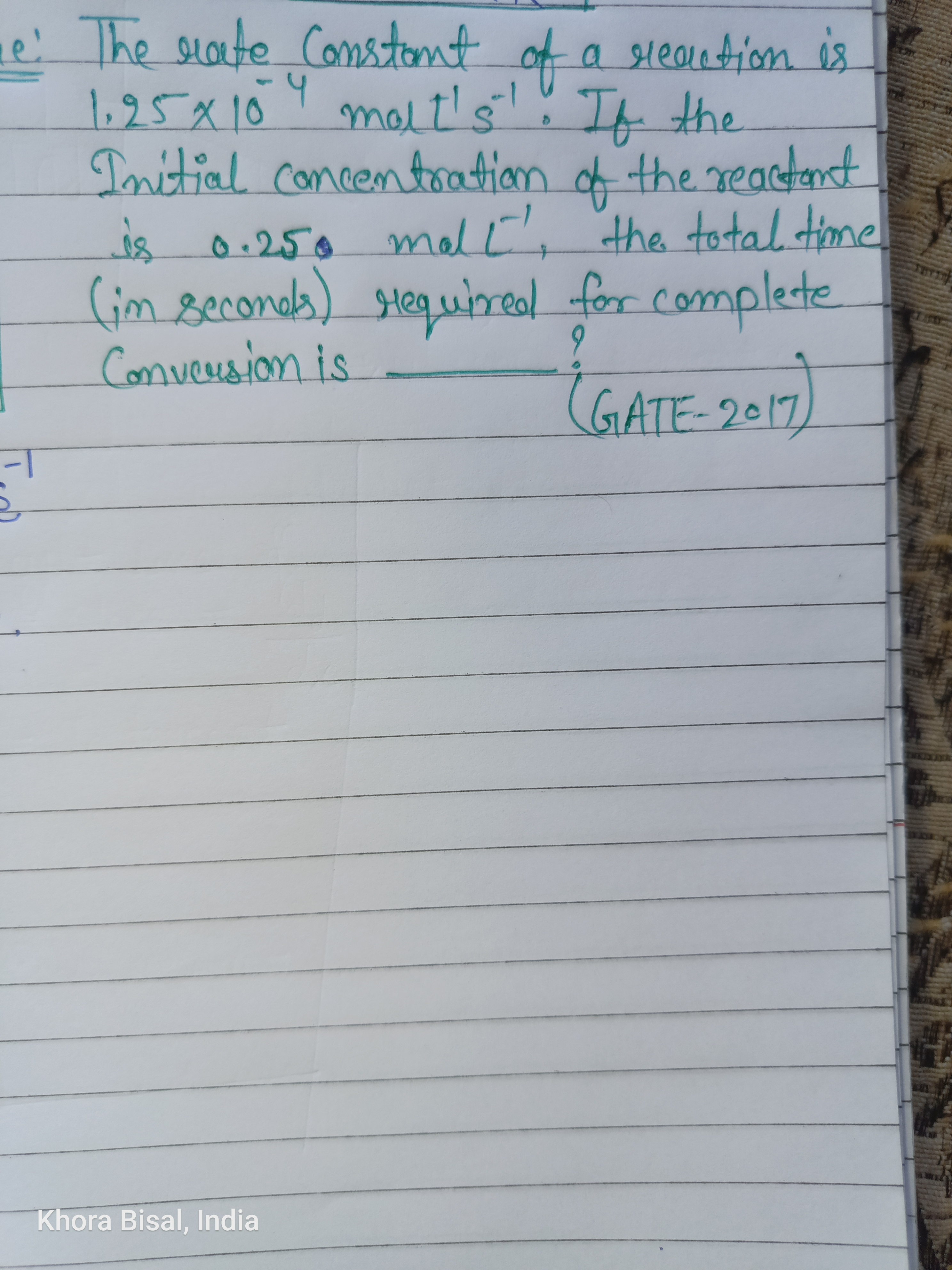The rate constant of a reaction is 1.25 x 10^4 mol^-1 s^-1. If the initial concentration of the reactant is 0.25 mol L^-1, the total time (in seconds) required for complete convers... The rate constant of a reaction is 1.25 x 10^4 mol^-1 s^-1. If the initial concentration of the reactant is 0.25 mol L^-1, the total time (in seconds) required for complete conversion is __________?

Understand the Problem
The question is asking for the total time required for complete conversion in a chemical reaction given the rate constant and initial concentration of the reactant. This involves applying the rate laws and possibly using integrated rate equations to determine time based on the provided data.
Answer
The total time required for complete conversion is approximately $0.00032 \, \text{s}$.
Answer for screen readers
The total time required for complete conversion is
$$ t = \frac{-4}{1.25 \times 10^4} \approx 0.00032 , \text{s} $$
Steps to Solve
- Identify the rate law and constants
Given data:
- Rate constant, $k = 1.25 \times 10^4 , \text{mol}^{-1}\text{L}^{-1}\text{s}^{-1}$
- Initial concentration of the reactant, $[A]_0 = 0.25 , \text{mol/L}$
Since the rate constant has units indicating a second-order reaction, we can use the integrated rate law for a second-order reaction.
- Write the integrated rate equation
The integrated rate equation for a second-order reaction is given by:
$$ \frac{1}{[A]} - \frac{1}{[A]_0} = kt $$
where:
- $[A]$ is the concentration at time $t$,
- $[A]_0$ is the initial concentration,
- $k$ is the rate constant,
- $t$ is the time.
- Set the concentration for complete conversion
For complete conversion, the concentration of the reactant $[A]$ will approach $0$. Therefore, we can set up the equation as follows:
$$ \frac{1}{0} - \frac{1}{0.25} = (1.25 \times 10^4) t $$
This simplifies to:
$$ -\frac{1}{0.25} = (1.25 \times 10^4) t $$
- Solve for time $t$
From the equation:
$$ -4 = (1.25 \times 10^4) t $$
Now, solving for $t$ gives us:
$$ t = \frac{-4}{1.25 \times 10^4} $$
Calculating this provides the total time required for complete conversion.
The total time required for complete conversion is
$$ t = \frac{-4}{1.25 \times 10^4} \approx 0.00032 , \text{s} $$
More Information
The computed time is very small, indicating that the reaction proceeds rapidly given its high rate constant. This exemplifies the behavior of second-order reactions where the rates are significant even with relatively small concentrations.
Tips
- Not recognizing the order of the reaction based on the units of the rate constant.
- Failing to account for the concentration approaching zero correctly during calculations.
- Misinterpreting the negative sign when evaluating the integrated rate equation.
AI-generated content may contain errors. Please verify critical information